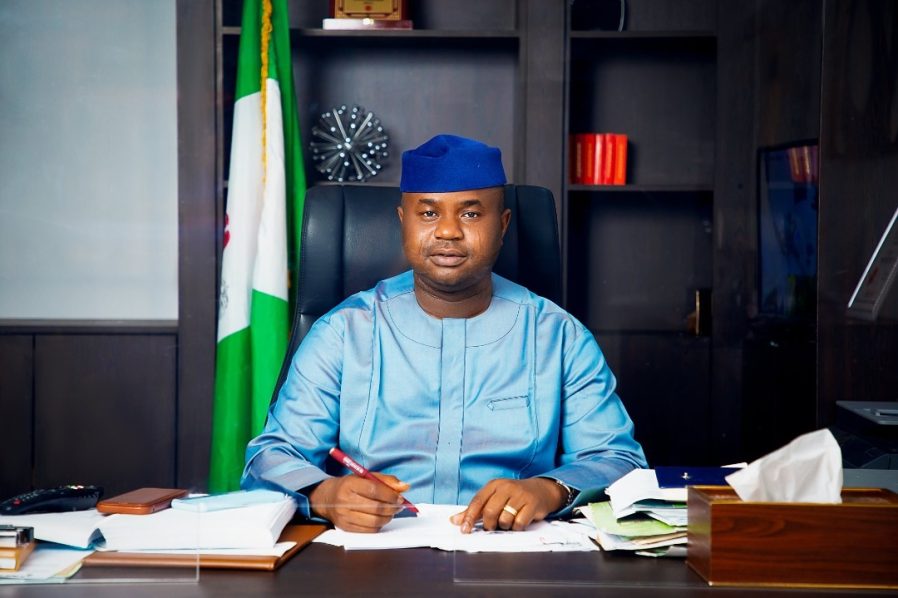
The Executive Chairman of the Federal Inland Revenue Service (FIRS), Dr Zacch Adedeji, has said that effective legal frameworks for tax administration are integral to fostering good governance and accountability.
According to him, the introduction of legislative measures such as the Nigeria Tax Bill 2024, the Nigeria Tax Administration Bill, the Nigeria Revenue Service Establishment Bill, and the Joint Revenue Board Establishment Bill, are designed to overhaul tax administration and revenue generation in Nigeria.
These reforms, he said, provide a robust legal foundation for transparent tax collection, ensuring that revenues are judiciously allocated toward public goods and services.
Adedeji made the statement in his keynote address during the 15th anniversary lecture of T&A Legal in Lagos, which had the theme “Driving the Future Economy in Nigeria: The Catalytic Role of the Law.” He argued that with its expanded mandate, the Nigerian Revenue Service is poised to rigorously enforce these regulations, enhance public trust in government institutions, and ensure that tax revenues are used effectively to improve governance and accountability nationwide.
His words: “The law, as a catalyst for progress, is the enabler of this vision, and through collective commitment and action, we will drive the change that secures Nigeria’s future.
“The law is one of the most powerful agents of change. It can transform challenges into opportunities, ideas into action, and visions into reality.
“However, the power of the law is only as effective as the people tasked with implementing it. This is where collaboration becomes critical.
“The success of the Tax Reform Bills and other economic initiatives depends on the collective efforts of all stakeholders—government agencies, private sector actors, civil society, and citizens alike.
“Each of us has a role to play in ensuring that the frameworks we create are aspirational and operational. This requires us to move beyond traditional silos, embrace innovation, and remain focused on the broader national interest.
“At this critical juncture in our nation’s development, we are reminded that law is not merely a static set of rules, but a dynamic force—a catalyst capable of driving economic transformation, social progress, and national prosperity.”
However, the commissioner for Finance, Ekiti State and Chairman of the Forum of State Commissioners of Finance in Nigeria, Akintunde Oyebode argued that using the law to drive the current economy in Nigeria implies that the issue of fiscal federalism must be addressed.
According to him, with a strong centre (backed by the constitution), there is little or nothing other federating units can do to better their lots. He stressed that some matters still listed in the Exclusive Legislative List can stifle sub-national economic growth.
He said matters such as bankruptcy and solvency, company law, copyright, labour and railways, should be matters for states to legislate on, or at the very least, both the Federal and State Governments.
He pointed out that the constitution and its provision for the economic power of states, legal obstacles and bureaucratic challenges, review and reform of obsolete legislation, policy consistency and the enforcement of contracts in our judicial system are issues that must be effectively addressed if the country must make progress.
“Contract is the bedrock of every business relationship, and it is inevitable that disputes will arise in contractual obligations, so it is imperative that we ensure our legal system is adequately equipped to adjudicate on specialised contractual obligations.
“It is important to remind ourselves that we are not where we were 20 years ago, but we can do much better. This is possible if we align our laws and policies to build a vibrant economy comparable to other economies in Africa or even globally,” he declared.
Earlier in his welcome address, co-founder of the firm, Seyi Adisa, said the occasion is not only about the 15th anniversary but also about celebrating the vision and commitment that have driven them to where they are today.
“Our firm has been privileged to represent clients across diverse sectors, from ambitious startups in one-room apartments like we started, to now established corporations that own their whole building.
“We have offered cutting-edge legal solutions and support, regulatory compliance, and economic development to all our clients.And we are humbled that we stand before you as leaders in the field that we operate in.
“Beyond our core practice, we have remained committed to community service in various capacities as well.
And we have continually sought to use our legal expertise as a force for positive change.
“We believe that the law is not just a set of rules. It’s a vital instrument for shaping policies, driving innovation, and ensuring a stable and thriving economic environment,” he said.
He explained that the lecture title was significant as it reflects the core values and ideals that have always guided the firm.His words: “Much like how a good foundation is essential for any building, building strong legal frameworks are crucial for building a robust economy.
“After 15 years of practice, we have learned that prevention is always better and more affordable than cure. As we look to the future, we understand that the law is not just about regulation or enforcement.
“It is a dynamic, transformative tool that can unlock innovation, foster a stable environment, and also ensure the sustainability of our nation’s economic progress.
“Law is the bedrock upon which businesses thrive, entrepreneurs succeed, and the economy flourishes. Whether in areas like infrastructure, energy, digital transformation, or the financial sector, the legal framework we build today will determine the type of economy we live in for the next generation.”
At the event, the minister of Industry, Trade and Investment, Dr Jumoke Oduwole attended as a special guest of honour among other renowned dignitaries. It also featured a panel discussion anchored by a senior counsel of T&A Legal, Sharon Okpo.
Members of the panel were the commissioner for Innovation, Science and Technology, Lagos State, Olatubosun Alaka; co-founder of Max, Adetayo Bamiduro; Executive Director, Cardinal Stone, Mohammed Garuba; Partner, Banjo & Ighodalo, Deji Oyebode and the CEO, Vendy, Kayode Disu.






